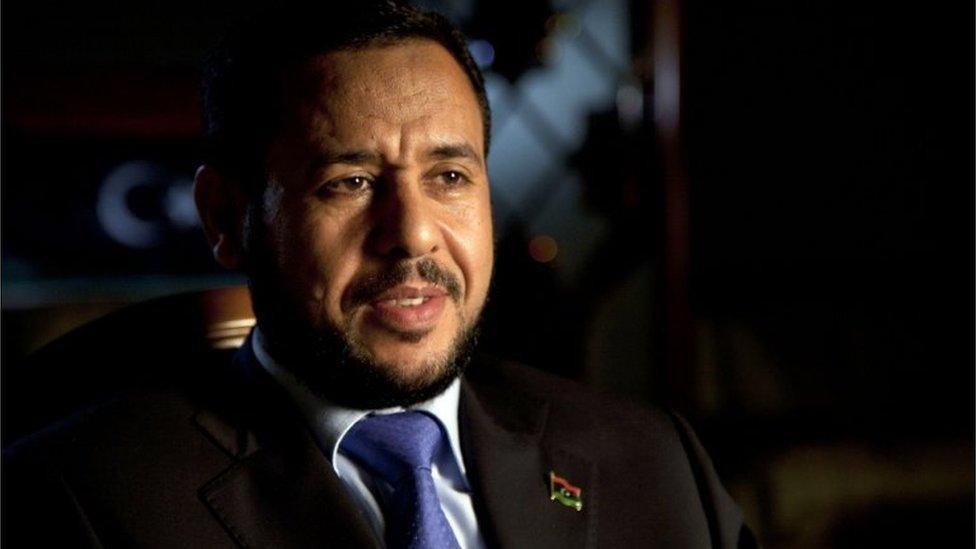Judge says torture case evidence can be heard in secret
- Published

Abdul Hakim Belhaj is fighting the case along with his wife Fatima Boudchar
A court case involving allegations MI6 colluded in torture can be held partly in secret, the High Court has ruled.
The court heard a government claim that it would damage national security to hear full details of the evidence.
The case has been brought by Libyan man Abdul Hakim Belhaj and his wife against MI6, various government departments and former Foreign Secretary Jack Straw.
Mr Belhaj says the government arranged in 2004 for him to be flown to Libya, where he was tortured by its regime.
The north African country was ruled by Colonel Muammar Gaddafi at that time - and Mr Belhaj was a well-known dissident who opposed his regime.
The UK Supreme Court has previously heard that he and his wife Fatima Boudchar claim they were was detained first in Malaysia and then Thailand in 2004 before being put on an American flight to Libya. They claimed that this was because MI6 alerted Libya as to their whereabouts - and that the UK government "arranged and assisted" in flying them to Libya.
In the current hearing, the High Court was told of allegations that the British defendants were complicit in the alleged mistreatment of Mr Belhaj "and supplied questions for the interrogation" by Colonel Gaddafi's regime.
Judge Mr Justice Popplewell ruled that disclosing sensitive material "would reveal operational details of the activities of the security services in relation to intelligence".
He also stated that holding closed sessions in which the press, public and defence lawyers are locked out of court would allow the allegations to be heard by the court.
"These claims are brought not only against the government, but against two named individuals who both wish to have a real and fair opportunity to defend themselves, but who cannot do do unless there is a closed material procedure."
Jack Straw served as Foreign Secretary from 2001 to 2006
Such controversial procedures were created in 2013 as a result of a long legal battle fought by former British detainees in the US detention facility at Guantanamo Bay. They won compensation but the government argued it had not been able to defend itself in open court because it would have damaged national security.
The Supreme Court ruled earlier this year that Mr Belhaj and Miss Boudchar should be allowed to bring their civil claim against the government.
Mr Belhaj and Miss Boudchar are also suing former MI6 official Sir Mark Allen.
Following today's judgement, Mr Belhaj said "Fatima and I have stuck with this case for all these years because we believe the British system, unlike Gaddafi's, can deliver justice. But what kind of a trial will it be if we put in a mountain of evidence and government officials can simply refuse to answer us? It's hard to see how this fits with Britain's long tradition of open justice."
- Published9 June 2016